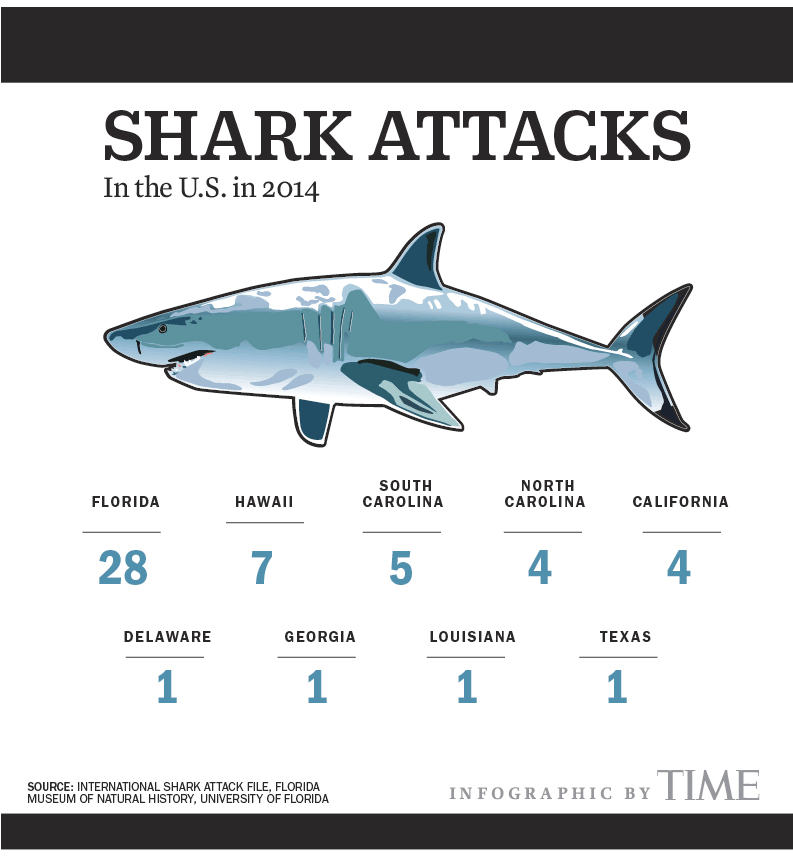
From the vicious predator portrayed in Jaws to Shark Week on the Discovery Channel, shark attacks occupy a unique place in the public imagination. That fascination was on full display this week when two separate shark attacks in North Carolina spurred a media feeding frenzy.
Around the world, shark attacks are rare. But when they do attack, they’re more likely to bite in the United States than in any other country.
Around two-thirds of all shark attacks occur in U.S. waters, according to George Burgess, director at the Florida Program for Shark Research. The U.S. is prime territory for human-shark interactions due to the country’s hundreds of thousands of miles of coastline and the American habit of relaxing on the beach, Burgess explained.
But no place is a better draw for both sharks and humans within the U.S. than Florida.
Beachgoers in the state experienced 28 shark bites in 2014, and there have been 10 already this year, according to the International Shark Attack File at the University of Florida.
And if you really want to see where sharks meet humans, head to Volusia County in Florida, home to Daytona Beach. The county had 10 shark bites last year alone.
“It’s a good place to be a shark, it’s a good place to be a human,” said Burgess of Florida’s coastline. “As a result, it’s no surprise that Florida would lead the world in shark attacks.”
No matter where you go, however, shark attacks are rarely fatal. There’s been just one fatality this year in the U.S.
More Must-Reads From TIME
- The 100 Most Influential People of 2024
- Coco Gauff Is Playing for Herself Now
- Scenes From Pro-Palestinian Encampments Across U.S. Universities
- 6 Compliments That Land Every Time
- If You're Dating Right Now , You're Brave: Column
- The AI That Could Heal a Divided Internet
- Fallout Is a Brilliant Model for the Future of Video Game Adaptations
- Want Weekly Recs on What to Watch, Read, and More? Sign Up for Worth Your Time
Write to Justin Worland at justin.worland@time.com